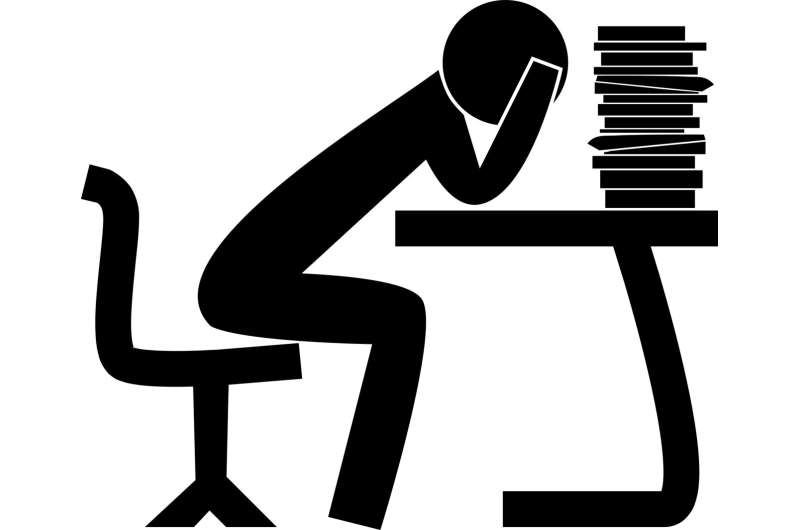How we learn from being wrong can lead to anxiety

How we learn from erroneous expectations that we face in the real world differs from person to person. While some may develop an optimistic viewpoint towards life, others may take on a more pessimistic outlook.
Psychology researchers have analyzed how predictions and expectations can affect individuals’ moods and outlooks in a controlled lab setting, but University of Miami researchers decided to investigate the ups and downs of human expectations using what matters most to undergraduate students—their exam grades.
The researchers’ study, “Individual differences in naturalistic learning link negative emotionality to the development of anxiety,” is now online in the journal Science Advances.
“Whether we are conscious of it or not, we’re always forming expectations,” said Aaron Heller, senior author in the study and an associate professor in the Department of Psychology. “Whenever our expectations turned out to be wrong, they become a learning signal that we use to form better expectations in the future.”
While previous prediction error studies conducted in the lab have used simulated scenarios, Heller and his team decided to take a more naturalistic approach by analyzing students’ expectations surrounding their exam grade predictions while attending a chemistry course at the University of Miami.
To help researchers collect the data, students consented to share their grades for four exams taken throughout the semester. After each exam, students sent Heller and his team a prediction of the grade they expected to get (from zero to 100) on that exam. In smaller lab studies looking at how individuals learn from these expectancy violations, data has shown that people display what is called an “optimistic learning bias,” which means they tend to learn more from positive, relative to negative surprises.
In their study with students, Heller also found similar results. In general, most students displayed an optimistic learning bias in that they learned more when doing better than they expected than when they did worse. However, there was another group of students who were more consistently pessimistic over the semester.
“When the more optimistic students received a lower score than they anticipated, they changed their expectations appropriately, but did not overcorrect following these disappointments on the next exam. But the students who were more pessimistic tended to predict they would get a lower score on a subsequent exam even if their last grade was slighter higher than what they predicted,” said Heller. “This led them to be more inaccurate in what they expected overall, and due to how they learned, predicted whether students would develop symptoms of anxiety later on in life.”
In essence, the study presents evidence that individuals’ positive and negative emotions were not just driven by the exam grades they received, but by what they expected to receive.
“Helping people to have more accurate expectations is an important treatment option for things like anxiety and depression,” said Heller.
More information:
William J. Villano et al, Individual differences in naturalistic learning link negative emotionality to the development of anxiety, Science Advances (2023). DOI: 10.1126/sciadv.add2976
Journal information:
Science Advances
Source: Read Full Article
